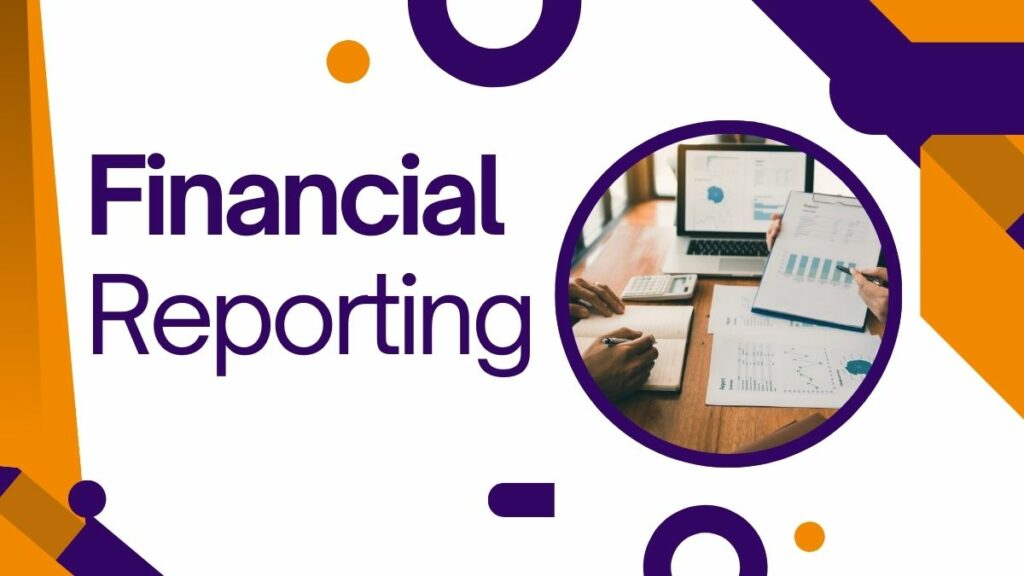In today’s era of transparency and accountability, effective communication of financial insights is crucial for businesses. Clear and concise financial reporting is essential for building trust with stakeholders, including investors, customers, employees, and the public.
If you wish to become an expert in accounting and finance, enrol in Imarticus Learning’s financial accounting course.
The Importance of Transparency in Financial Reporting
Transparent financial reporting is essential for several reasons:
- Investor Confidence: Clear and accurate financial reporting builds trust, encouraging investors to invest in the company.
- Stakeholder Relations: Transparent and effective financial communication fosters positive relationships with stakeholders, including customers, employees, and suppliers.
- Regulatory Compliance: Financial reporting must comply with various regulations and standards, such as Generally Accepted Accounting Principles (GAAP) or International Financial Reporting Standards (IFRS).
- Risk Management: Transparent reporting can help identify and mitigate financial risks.
- Decision Making: Accurate financial information is essential for making informed business decisions.
Key Components of Financial Reporting
Effective financial insights reporting strategies include the following components:
- Financial Statements: The core of financial reporting consists of the income statement, balance sheet, and cash flow statement. These statements comprehensively overview a company’s financial performance, position, and cash flow.
- Notes to the Financial Statements: These notes provide additional information to clarify and supplement the financial statements. They may include details about accounting policies, significant judgments, and contingent liabilities.
- Management’s Discussion and Analysis (MD&A): This section provides a narrative overview of the company’s financial performance, including key trends, risks, and uncertainties.
- Financial Reporting Framework: The framework for preparing financial statements, such as GAAP or IFRS.
Best Practices for Financial Reporting
- Clarity and Conciseness: Financial reports should be clear, concise, and easy to understand, even for non-financial professionals.
- Accuracy and Completeness: Ensure financial information is accurate, complete, and relevant.
- Timeliness: Financial reports should be issued in a timely manner to provide stakeholders with up-to-date information.
- Comparability: Financial reports should be comparable to previous periods and those of other companies in the same industry.
- Consistency: Use consistent accounting policies and methods over time.
- Disclosure: Disclose all material information that could affect investors’ decisions.
Enhancing Transparency through Technology
Technology can significantly enhance transparency in financial reporting. For example, companies can use XBRL (Extensible Business Reporting Language) to create interactive financial reports that can be easily analysed and compared. Additionally, companies can use data visualisation tools to present complex financial information clearly and understandably.
Challenges and Opportunities in Financial Reporting
The financial reporting landscape constantly evolves, with new challenges and opportunities arising. Despite these challenges, businesses also have significant opportunities to enhance their financial reporting. By embracing technology, adopting best practices, and fostering a culture of transparency, companies can build trust with stakeholders and improve their overall financial performance.
Some of the key challenges include:
- Complexity: Financial reporting can be complex, making it difficult for stakeholders to understand.
- Data Privacy: Protecting sensitive financial data is a critical concern.
- Global Standards: Ensuring compliance with global accounting standards can be challenging for multinational companies.
The Role of Internal Controls in Financial Reporting
Strong internal controls are essential for ensuring the reliability and accuracy of financial information. Internal controls help prevent fraud, errors, and inefficiencies. By implementing effective internal controls, companies can enhance the credibility of their financial reports and build trust with stakeholders.
The Importance of Ethical Conduct in Financial Reporting
Ethical conduct is fundamental in financial reporting. Accountants and other professionals must adhere to ethical standards and avoid conflicts of interest. Ethical behaviour enhances the credibility of financial information and protects the profession’s integrity.
The Role of Financial Reporting in Risk Management
Financial reporting can help businesses identify and manage financial risks. Companies can assess their risk exposure and develop mitigation strategies by analysing financial data and trends.
The Importance of Stakeholder Engagement in Financial Reporting
Effective communication with stakeholders is essential for building trust and understanding. Companies should engage with stakeholders to gather feedback, address concerns, and ensure financial reports meet their needs.
The Future of Financial Reporting
The domain of financial reporting is constantly evolving, driven by technological advancements, regulatory changes, and changing stakeholder expectations. Companies must stay informed about emerging trends and adapt their financial reporting practices accordingly.
Technology has revolutionised financial reporting, enabling companies to automate processes, improve efficiency, and enhance transparency. Advanced accounting software and data analytics tools can help businesses produce accurate and timely financial reports.
Wrapping Up
Effective communication of financial insights is essential for building trust with stakeholders, managing risks, and making informed business decisions. By adhering to best practices for financial reporting, companies can enhance their transparency, credibility, and overall financial performance.
Businesses must strive to provide stakeholders with clear, accurate, and timely financial information. By doing so, they can build trust, foster positive relationships, and achieve long-term success. If you wish to master accounting and financial management, enrol in Imarticus Learning’s Postgraduate Financial Accounting and Management Program.
Frequently Asked Questions
What is the difference between financial accounting and managerial accounting?
Financial accounting provides external stakeholders information about a company’s financial performance and position. Managerial accounting provides internal management with information to aid in decision-making and planning.
What are the key financial statements?
The three primary financial statements are the income statement, balance sheet, and cash flow statement.
What is the role of auditing in financial reporting?
Auditing involves examining an organisation’s financial records to ensure they are accurate, complete, and comply with relevant accounting standards. Auditors provide an independent assessment of the financial statements.
What are some emerging trends in financial reporting?
Emerging trends in financial reporting include the increased use of technology, data analytics, and sustainability reporting. Additionally, there is a growing emphasis on transparency and accountability in financial reporting.

